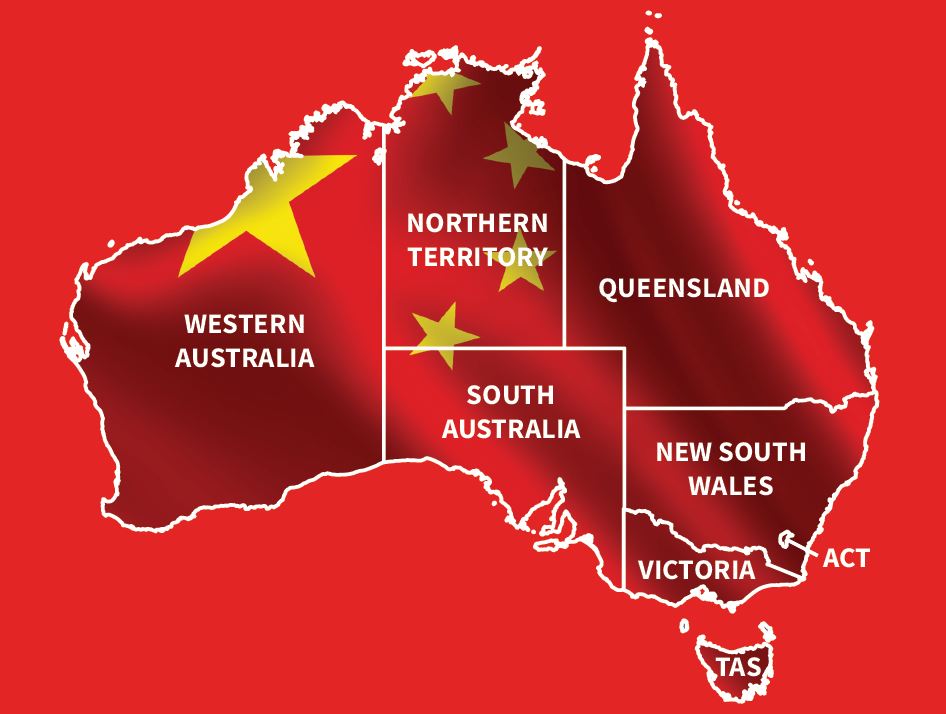Taking the low road: China’s influence in Australian states and territories
Posted By John Fitzgerald on February 15, 2022 @ 06:00

Australia’s states, territories and communities enjoyed close and mutually beneficial relations with China for four decades from the late 1970s through to Xi Jinping’s rise to power in the 2010s. With Xi’s ascent, authorities in China began leveraging longstanding subnational partnerships with Australian state and territory governments, universities, business associations, community organisations and Chinese-language media to voice their support for China’s geopolitical interests in the region, in some cases contrary to Australia’s national interests. State and territory governments that had little formal role to play in national security could no longer escape it. Local universities, business associations and community groups that rarely paid attention to such matters found themselves entangled in public debates about national security, institutional integrity and social cohesion.
A new ASPI report [1] maps the transition in state and territory linkages with China from the relatively innocent days of the 1980s and 1990s through to more fraught times under Xi. Authors based in each state and territory offer close readings of relations with China in their jurisdictions, along with additional chapters on local and regional business networks, the challenges of university engagement, constitutional issues presented by state-level relations with China, and the place of local-to-local networking in the Chinese Communist Party’s united front playbook. All up, Taking the low road is the most comprehensive study ever undertaken into Australia’s relations with China outside the national level.
On top of mapping local relations, a further aim of the report is to chart new rules of engagement for navigating what the report calls the ‘paradox of paradiplomacy’ for Australian states, territories and local communities wishing to maintain relations with their counterparts in China despite difficulties at the national level.
The paradox is this. The further removed local actors are from having to worry about national security or national interests, the greater their opportunities for open dialogue, cooperation and trust. Local relations and people-to-people ties with foreign countries familiarise communities with one another, cultivate business and investment networks, and help to build broad understanding and trust through myriad points of connection. That has to be a good thing.
On the downside, the greater the distance from strategic or security policymaking, the greater the risks that local actors face of taking missteps in matters of security or foreign policy or social cohesion. When ideological practices and political systems in the two countries are misaligned, the risk calculus in subnational relations can escalate sharply. This is the case with Australia–China relations in the ‘new era’ of Xi Jinping.
The authors of the report assume that people-to-people ties, diaspora diplomacy and subnational government-to-government relations are growing and important fields of play. Advances in technology and digital communications and large-scale migration, educational interaction and tourism have all expanded opportunities for paradiplomacy to new levels—at least before Covid-19 wreaked its havoc. And new roles emerged for local state and city governments to aggregate individual and grass-roots community initiatives to levels where they can make a difference on issues that nation-states often fail to agree upon, such as climate change.
And yet, subnational diplomacy between countries works best when it’s undertaken on a transparent, free, egalitarian and inclusive field of play without fear of censorship or retribution. We don’t assume that those conditions apply in every case. In Australia’s relations with China, the benefits of diaspora diplomacy are difficult to realise when immigrant communities in one country fear that their families and friends in the other will be harassed or detained if they say or do anything out of turn. The free play of digital diplomacy requires a level playing field supported by an open internet, again a condition not met in China. And while subnational, twin-city and sister-state diplomacy can have mutual benefits, China’s pervasive united front operations carry risks that aren’t widely appreciated at the local level.
In addition to weighing risks and benefits, we make a number of recommendations for practitioners to help get local relations back on track. Opinion polling in Australia and China indicates that four decades of goodwill built up painstakingly through business and cultural relations, tourism, study programs and people-to-people ties is rapidly running dry. We want to restock that reservoir of goodwill by helping set Australia’s relations with China on more secure, reciprocal and sustainable footings for the long term.
Australia stands to benefit from continuing people-to-people, diaspora and subnational diplomatic engagements with China. Maintaining those flows while minimising risks calls for responsive, coherent and resilient systems for managing relations among state and local governments and community organisations, and the federal government, in their dealings with China. Charting new rules of engagement for mutually beneficial diplomacy also requires all Australians to be clear-headed about their values and interests and resolved to defend them when necessary; to be clear-eyed about the risks as well as the opportunities of China engagements; and to be clear-minded about the purposes particular initiatives serve in the bilateral relationship and ready to adjust their plans when outcomes don’t turn out as anticipated.
Article printed from The Strategist: https://www.aspistrategist.org.au
URL to article: https://www.aspistrategist.org.au/taking-the-low-road-chinas-influence-in-australian-states-and-territories/
URLs in this post:
[1] new ASPI report: https://www.aspi.org.au/report/taking-low-road-chinas-influence-australian-states-and-territories
Click here to print.